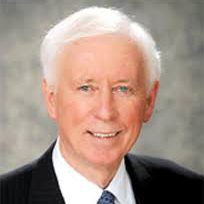ANEMECON-26, Nepal Medical Association
(06.03.13) I returned yesterday from participating in the All Nepal Medical Conference (ANEMECON-26) in Kathmandu, Nepal, March 2-4. This meeting has been held every other year since the founding of the Nepal Medical Association (NMA) in 1951. It features scientific sessions as well as those focusing on public health and health system improvement. In addition it is the occasion for inauguration of the new NMA president.
In a highlight of the meeting Dr. Ram Baran Yadav, President of Nepal, spoke at the inauguration ceremony March 2 for incoming NMA president, Dr. Anjani Kumar Jha. President Yadav is a physician and a member of the NMA.
President Yadav applauded the theme chosen for the conference – “Earthquake-Hospital Preparedness and Response”. He pointed out that Nepal is vulnerable to natural as well as manmade disasters and lies in one of the most earthquake prone areas of the earth.
He emphasized the important role of the health sector in devising and implementing a mass casualty plan. In addition, he added that motor vehicle accidents and injuries are on the rise in developing countries like Nepal where roads are ill maintained and drivers are not properly trained.
President Yadav, pointed that the private sector can be very effective in helping with public disaster programs. And he expressed his “hope that the ANEMECON-26 conference will allow interaction among medical professionals from the developing as well as developed countries to share experiences and serve the needy and vulnerable communities”.
In his inaugural address, Dr. Jha, a radiation oncologist who will serve a three-year term, described preservation of good health as a fundamental human right. He emphasized the importance of the medical profession being involved not only in curative medicine, but also health education, health promotion, disease prevention and rehabilitation.
He called on physicians to participate in creating a healthy Nepal by promoting issues related to the social determinants of health such as environmental preservation, family life styles, pollution control and limitation of chemical usage. In addition he stated that a healthy people cannot be achieved solely by doctors. All health professionals must be involved such as nurses, pharmacists, dentists, technicians, physical therapists and community volunteers.
Dr. Jha pointed out that as a developing country, Nepal has a significant burden of infectious disease that is increasing. In addition industrialization has changed the economy from one that is primarily agricultural in lifestyle. This and other factors have resulted in an increase of noncommunicable diseases. These include cardiovascular disease, hypertension, lung disease, diabetes and cancer. They are caused by lifestyle behaviors such as tobacco use, alcohol abuse, obesity and lack of physical activity.
He added his observation that having programs on disaster response is made the more urgent by the fact that Nepal is in one of the highest earthquake risk zones in the world. And, highlighting the increasing incident of violence against physicians, Dr. Jha stated that the security (safety) of physicians to work is essential to the provision of quality health care.
As has been the case throughout my travels this year, I was once again impressed by the similarities of the challenges faced by people regardless of their location in the world. In addition, being in Nepal I was made more aware of the triple challenges with which developing countries in the world must contend – noncommunicable disease, infectious disease and trauma. These challenges are made the more formidable by poor economies, meager income levels, high unemployment and poor to nonexistent health system structures. And in Nepal, civil unrest and an unresolved constitutional conflict make the government ineffective in responding to its citizens’ needs.
Attending ANAMECON-26 and hearing the Nepalese physicians, I was once again impressed by the dedication and commitment of physicians everywhere to care for their patients.
At the conference I gave the Nepal Medical Association Oration, which I titled “Healthcare Systems and the Medical Profession’s Future”. In addition, at Dr. Jha’s inauguration I brought greetings from the World Medical Association ending with the following thoughts.
“Life is filled with opportunities and responsibilities.
And nowhere are those opportunities and responsibilities found in greater measure than in the profession of medicine.
As physicians we have the opportunity to heal and the responsibility to do no harm.
We have the opportunity to care for those who are ill
And the responsibility to assure that the care we give is the best care.
In addition, we have the opportunity and responsibility to assure that the environment in which we work is supportive of care for the patient and the community.
Through the centuries, individual physicians have fulfilled this responsibility by applying their skills and knowledge – competently, selflessly and at times – heroically.
Today, we must reaffirm our historical commitment to combat natural and man-made assaults on the health and well being of humankind.
Acting together across the divides of geography and ideology we can overcome such powerful threats.
As physicians we share common cause.
That includes disaster preparedness for earthquakes, floods and tsunamis, and medicine’s response to potential pandemics spawned by infectious diseases.
No one nation, no matter how powerful, can respond alone to a natural disaster.
No one nation can alone conquer infectious disease.
No one nation can develop every new treatment or technology – alone.
Can advance the cause of caring, ethical, medical science – alone.
As physicians, we are joined by our common contract with humanity.
We reach out to the sick, the disabled and the chronically ill.
Suffering knows no language and easing pain, finding treatments, developing cures – know no borders.
Together, we can open new doors, share new insights, find new cures, head off disease and help our patients the world over live healthier, happier, longer more productive lives.
Together we are stronger.
Thank you”

